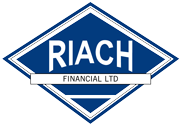Introduction
Buying a new home is an exciting milestone, but it’s essential to be aware of the various costs involved beyond the property price. Whether you’re a first-time buyer or a seasoned homeowner, understanding these expenses will help you plan better. Let’s explore the upfront costs and additional fees associated with purchasing a property.
Remember to speak to a mortgage adviser to find the most suitable mortgage deal for your needs.
Upfront Costs
Deposit
When buying a property, you’ll need to put down a deposit to secure a mortgage. Lenders typically require at least 5% of the property price. A higher deposit may lead to better interest rates.
Stamp Duty Land Tax (SDLT)
SDLT is a tax payable to the UK government when purchasing property. Rates vary based on whether you’re a first-time buyer and the property’s value.
If the property will be your sole residential property:
- No stamp duty on the first £250,000.
- 5% on the portion from £250,001 to £925,000.
- 10% on the portion from £925,001 to £1,500,000.
- 12% on the portion above £1,500,000.
If you own another residential property, an additional 3% applies.
First-time buyers are exempt for properties up to £425,000.
Learn more about SDLT on the government website.
Solicitor’s Fees and Conveyancing
Legal fees are significant but essential for a smooth home-buying process.
Expect to pay £1,000 – £2,000 (including VAT) for a good solicitor.
Your solicitor will:
- Draft contracts with the seller.
- Handle stamp duty payment.
- Conduct local authority searches (e.g., flood risks, development plans).
- Manage Land Registry documents.
- Ensure property deeds are registered in your name.
Additional costs may include electronic transfer fees.
Mortgage Fees
Valuation Fee
Your lender will assess the property’s value through a valuation. Some lenders include this cost in the mortgage deal, while others charge separately.
Expect to pay anywhere from £100 – £300.
Arrangement Fee
Also known as a “product fee.” Charged by the lender for setting up the mortgage.
Typically upwards of £1,000.
Paying Upfront vs. Adding to Mortgage
You’ll have the option to pay mortgage fees upfront or add them to your mortgage. Paying upfront avoids interest charges over the mortgage’s life.
Insurance
Various insurance policies are crucial when buying a home:
- Contents Insurance: Protects your belongings.
- Life Insurance: Provides financial security for your loved ones.
- Buildings Insurance: Mandatory by most lenders. Covers structural damage due to storms, floods, or fires. Essential for completing the home purchase.
Remember that your mortgage lender has a vested interest in your property’s safety. Having adequate insurance ensures you’re prepared for any unforeseen events.
Home Removal Costs
Moving your belongings can be stressful. Removal services cost between £100 – £2,000, depending on distance and volume.
Once you move to your new property
On top of the upfront charges, once you move to your new property you’ll have the recurring charges like council tax, utility bills, to pay, as well as any transfer or reconnection costs when you move, so it’s sensible to have some savings in place for when you first move.

